Search Results
Showing results 1 to 20 of 57

Dripping Wet or Dry as a Bone?
Learners investigate the concept of humidity by using a dry and wet sponge as a model. They determine a model for 100% humidity, a sponge saturated with water.

Small Worlds
Source Institutions
This is a simple activity fully driven by imagination. Using materials from the home, toys, or items from nature, learners create their own world to play with.
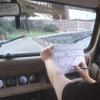
Highway Seismograph
Source Institutions
This is an activity that models the operation of a seismograph, a tool used to measure the size of earthquakes.
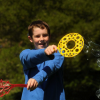
Wind Mapping with Bubbles
Source Institutions
Discover the wind's direction using bubbles, a map and a keen eye. Learners blow bubbles and note their general direction on a map, taking readings from different points around a building.
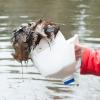
The Scoop on Habitat
Source Institutions
Some aquatic organisms live in open water, while some live in soil at the bottom of a body of water.

Drying It Out
Source Institutions
In this activity, learners investigate and compare the rate of drying in different conditions.

Dry Ice Comet
Source Institutions
In this activity, dry ice and other items are used to construct a demonstration model of a comet that illustrates the comet nucleus, coma, and tails.
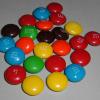
Radioactive Decay of Candium
Source Institutions
In this simulation, learners use M&M™ candy to explore radioactive isotope decay.

Fun with Bernoulli
Learners conduct four simple experiments to demonstrate the effects of air pressure.
Up, Up and Away with Bottles
Source Institutions
In this activity, learners make water rockets to explore Newton's Third Law of Motion. Learners make the rockets out of plastic bottles and use a bicycle pump to pump them with air.
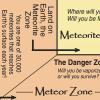
Space Rocks!: A Meteorite Game
Source Institutions
In this board game, learners explore the origins of meteors, meteoroids, and meteorites as well as the their characteristics and importance. They also discover some misconceptions about meteors.

Exploring the Universe: Space Guess Quest
Source Institutions
Space Guess Quest is a fun game that encourages participants to identify the many types of objects in space, from human-made spacecraft to nebulas, galaxies, stars, and worlds.

Foam Tower
Source Institutions
In this activity (page 1 of the PDF under SciGirls Activity: Water Slides), learners will whip up some suds with a cup of water and a tablespoon of dish soap until the bubbles are stiff enough to star

How Big Were the Dinosaurs?
Source Institutions
In this activity (located on page 4 of PDF), learners gain insight into the actual size of dinosaurs and practice making estimations and measurements.
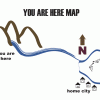
Earth Attractions
Source Institutions
In this activity, learners build and test a compass. Learners work in pairs and pretend they are stuck in the wilderness at night.

We all Scream for Ice Cream
Source Institutions
In this activity, learners observe how salinity affects the freezing point of water by making and enjoying ice cream.

It's the "Rain," Man
Source Institutions
In this weather forecasting activity, learners use common materials to construct a rain gauge and measure daily, monthly, and yearly rainfall.
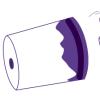
Air Cannon
Source Institutions
In this activity (page 1 of PDF under SciGirls Activity: Forecasting), learners will construct an air cannon by cutting a hole in the bottom of a bucket and stretching a garbage bag over the other end
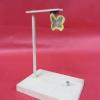
Floating Butterfly
Source Institutions
In this activity, learners create a cool floating animal using the science of magnetism. Learners discover what happens when a piece of magnetic metal enters a magnet's field.
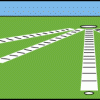
The Size and Distance of the Planets
Source Institutions
In this activity, learners investigate the concepts of relative size and distance by creating a basic model of the solar system.
